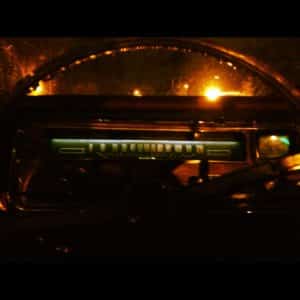
Georgia case law is clear that, absent some particularized suspicion of wrongdoing, merely driving down a public road late at night — whether in a quiet residential subdivision, in a high crime area, or in a way that fits a known “pattern” of criminal activity — does not justify an investigatory stop. See Hughes v. State, 269 Ga. 258, 260 (497 SE2d 790) (1998) (finding a lack of sufficient basis to justify an investigatory stop “merely because the person is a white man in a black neighborhood late at night, who picks up a black man at a location police consider a high-crime area, and who then drives slowly in a circular fashion through the neighborhood.”); Young v. State, 285 Ga. App. 214, 215-216 (2007) (“The act of driving at night, lawfully, on a public road [even] in a high crime area [with a lawnmower in the trunk] does not justify an investigative stop in the absence of additional circumstances,” despite being in an area of reported thefts.) (punctuation omitted); Lyttle v. State, 279 Ga. App. 659, 662 (2006) (investigatory stop not authorized because “the deputy did not observe [the defendant] doing anything other than driving at night, lawfully, on a public road in a high crime area”); Attaway v. State, 236 Ga. App. 307, 309 (511 SE2d 635) (1999) (reversing denial of a motion to suppress because the “only arguably suspicious behavior . . . was driving around a subdivision several times late at night”).
-Author: George Creal

